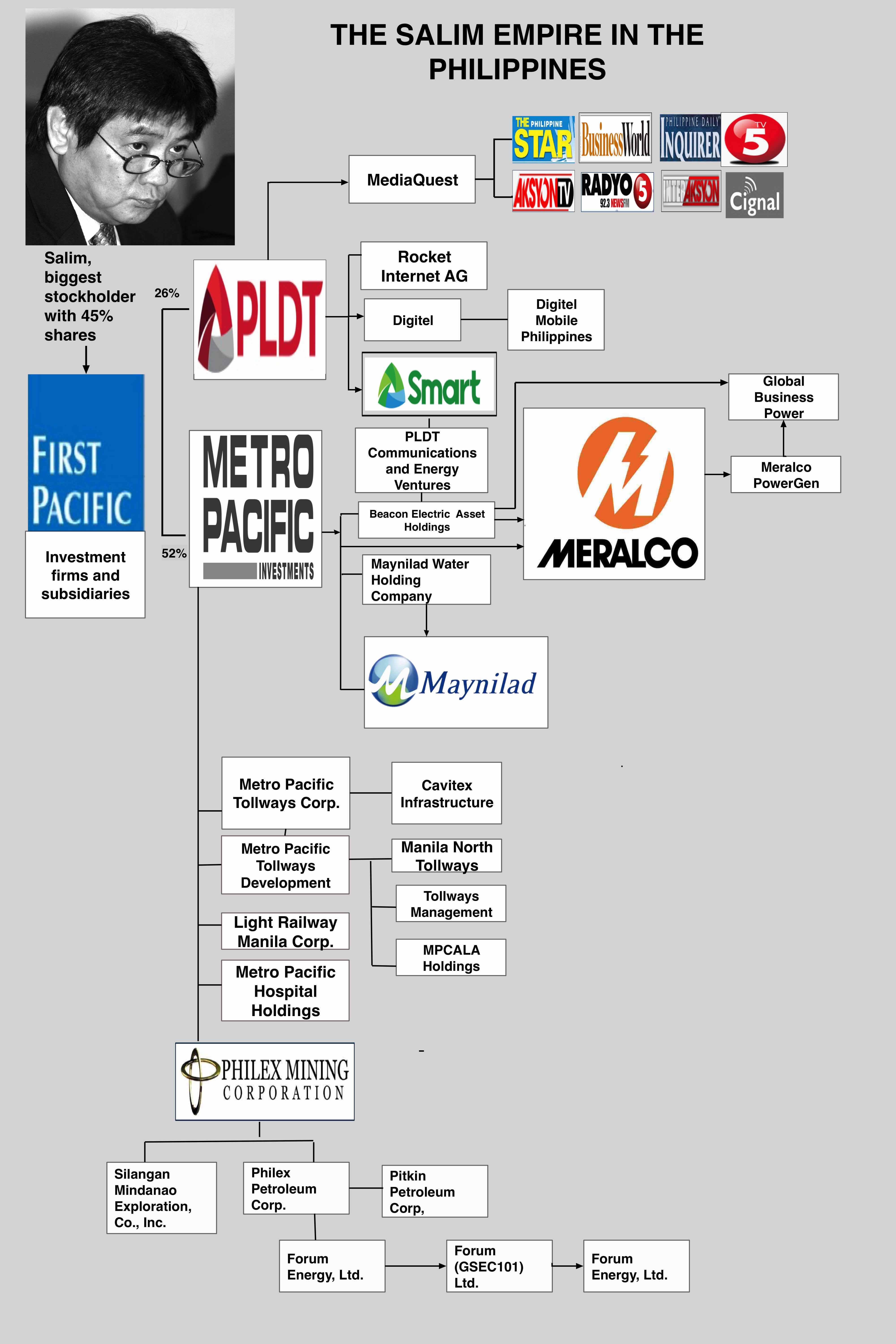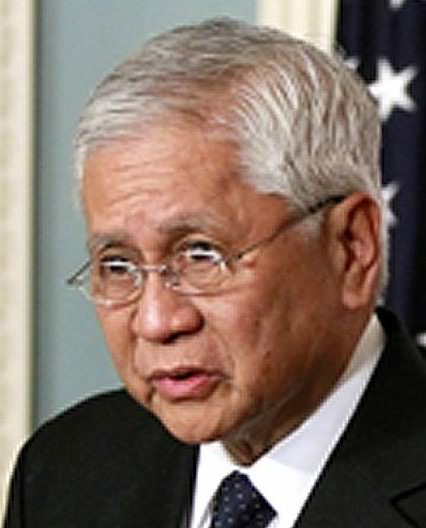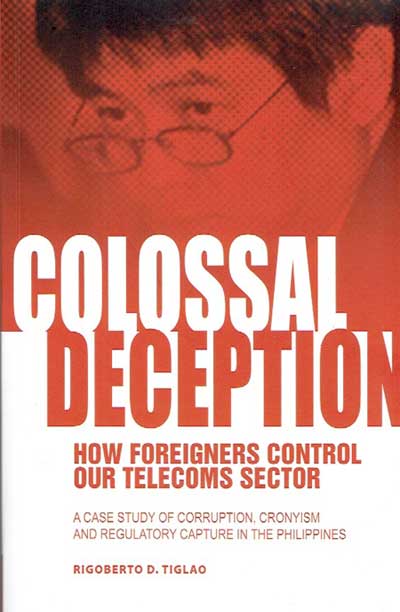In three of these, which he totally controls or has substantial stakes in — Philippine Star, Philippine Daily Inquirer, BusinessWorld — and in the third biggest TV-radio network in the country, Channel 5, which he also dominates, “Salim” is the name that can neither be written nor spoken.
It’s the elephant in the room of Philippine media, which practitioners pretend does not exist: How can a foreigner become the country’s media mogul despite the fact the Constitution prohibits even a single coin of foreign money invested in the press?
Salim has never ever set foot on Philippine soil, yet his First Pacific Co. Ltd. conglomerate in the Philippines has achieved growth through major moves under each of the past four Philippine administrations, with each President apparently extending crucial assistance and support — a phenomenon that would fit the definition of cronyism. With such support from sitting Presidents, Salim has overtaken many of the old magnates in stature in just two decades, even capturing the prized corporations of two of the country’s old elites, the Cojuangcos and the Lopezes.
There’s worse news. Salim’s conglomerate is based on telecoms, power, water distribution, and other public utilities — the few sectors the Constitution bars foreigners from controlling since they exploit natural and national resources that in all nations in the world are reserved for citizens. How bad can it get?
Salim, 67, has probably even become the most powerful oligarch in the Philippines.To situate Salim as an oligarch, Roberto Ongpin, whom Duterte had identified as an oligarch, actually simply acted as a clever investment banker who packaged Salim’s acquisition of Philex in 2009, after the Indonesian was rebuffed by the Social Security System (SSS) and when he faced a stiff challenge for control by the San Miguel Corp.
Salim is the controlling owner through his 45-percent stake in First Pacific Co. Ltd. This is the mother firm of the country’s biggest public utility companies, which include the lucrative cellphone sector (PLDT’s Smart), the electricity monopoly in metropolitan Manila (Meralco), the water distribution firm for the western half of the metropolis (Maynilad Water Services), the company operating the longest toll road system in the country, the infrastructure firm that is constructing the country’s expressways and light-rail systems, and the nation’s largest gold mining company, Philex Mining.

The reason why most Filipinos outside of big-business have never heard of Salim – even if they have most likely bought his products and services such as Smart phones, electricity, water and toll roads — is that he has been hidden very successfully from public view by the face of his top executive Manuel V. Pangilinan.
Instead of Salim, his top executive Pangilinan has been portrayed — falsely — as the biggest stockholder, or leads the stockholders of First Pacific, the Hong-Kong based, Bermuda-incorporated holding company of the vast Philippine conglomerate.
Colossal deception
This has been such a colossal deception foisted on the nation, so successfully that Salim’s conglomerate is routinely referred to as the “MVP Group of Companies.” Likewise, Pangilinan has always been known as the “top businessman” controlling the First Pacific group of companies, and never, ever, as “Salim’s executive.”
However, Pangilinan, despite his more than 30 years as Salim’s employee, receiving over P2 million a day in executive pay from Salim’s firms, owns insignificant shares in Salim’s conglomerate.
■ Pangilinan owns only a total of 1.4 percent stake in First Pacific Co., while Anthoni Salim owns 45 percent. This is exactly the same percentage share his father Soedono held when, with three other cronies of the Indonesian strongman Suharto, he set up the company in 1981 in Hong Kong. First Pacific was intended to move their crony wealth outside Indonesia, in a strategic move to prepare for the fall of Suharto, who at that time had already been in power for 14 years.
One of these cronies, Sutanto Djuhar, who had held 45 percent in 1981, is First Pacific’s next biggest stockholder with a 3 percent stake. The rest of First Pacific shares are distributed among 600 of the world’s most lucrative fund management firms, with 20 percent held by US institutions, making the firm essentially a Salim-US multinational.
■ Pangilinan holds only token shares — less than half a percent — in PLDT, MPIC, Philex and other Philippine companies of the Salim conglomerate. In all of these firms, the biggest stockholders are intermediaries or subsidiaries of Salim’s First Pacific. (The other Filipino who has been behind Salim’s expansion in the Philippines, having been his adviser since the 1980s, is former Philippine Ambassador to the US and Foreign Affairs Secretary Albert del Rosario, who has been a director of First Pacific from 2003 until 2011, and several of its biggest Philippine firms. Del Rosario’s wealth – he was the richest of Aquino’s Cabinet members – appears to have come mostly from his compensation from and business with Salim’s firms.)

Aquino’s foreign affairs secretary Albert del Rosario: The other Filipino behind Salim’s expansion into the Philippines.
One reason why many believe Pangilinan controls First Pacific is that his public image has been deftly managed since the 1990s, that he has a high-profile “corporate citizenship” unmatched by any tycoon or executive, past or present.
He has been portrayed as a patron of the sports, especially basketball, a generous donor of academic institutions (mainly his alma mater Ateneo), and a board member of prestigious universities to which he gives his precious, free financial advice. It has been, of course, Salim’s firms, mainly through the huge advertising budget of PLDT and Smart, that have been bankrolling these activities.
There is even a website for the “MVP Group of Companies CSR”, which reports the “Corporate Social Responsibility (CSR) programs of the MVP Group of Companies.” Its site includes firms like First Pacific Co. (Pangilinan’s employer) and Indofood, the Jakarta-based Salim-owned firm with which he doesn’t have any connection to at all.
A brilliant PR move for Pangilinan has been First Pacific’s acquisition of 12 hospitals, which include iconic ones such as Makati Medical Center, Cardinal Santos Medical Center and Manila Doctors’ Hospital. This has portrayed him (but not Salim whose Metro Pacific Hospital Holdings owns these hospitals) as a tycoon concerned not only with business profits but also with humanitarian endeavors such as medical care. But this isn’t solely philanthropic activity: First Pacific’s income from these amounted to $66.4 million (P3 billion) between 2010 and 2015.
Pangilinan’s “corporate citizenship is, indeed, a laudable quality so much needed in a country ruled by oligarchs, who view the Philippines merely as a country where they make profits, and not their real nation.
There is obviously however, a big ulterior reason for First Pacific’s huge public relations campaign to portray Pangilinan as a tycoon with a high sense of civic duty. This is to build up public sympathy for him, to make it easier for gullible Filipinos, including its political leaders, ,to believe the myth that he owns the First Pacific conglomerate, concealing the reality that it is tightly controlled by an Indonesian magnate, in violation of constitutional provisions limiting foreign capital in public utilities.
Beneath the hullabaloo of our wild democratic system, the drama of presidential contests, the seeming gravity of issues such as the US military basing agreement and China’s intrusion into our territory, and the drug pandemic, the heights of our economy has been quietly taken over by an Indonesian, and billions of dollars are being siphoned off the country as super-profits from public utilities — and most Filipinos aren’t even aware of it.
What a sad, unlucky country.
On Friday, even Forbes magazine now conceals Salim, who is not only an oligarch, but going by the UK-magazine The Economist’s definition, a crony.
Sources of data and a more comprehensive history and account of the Salim empire in the Philippines are found in my book, available online at rigobertotiglao.com/book and soon at major bookstores:

This email address is being protected from spambots. You need JavaScript enabled to view it.











